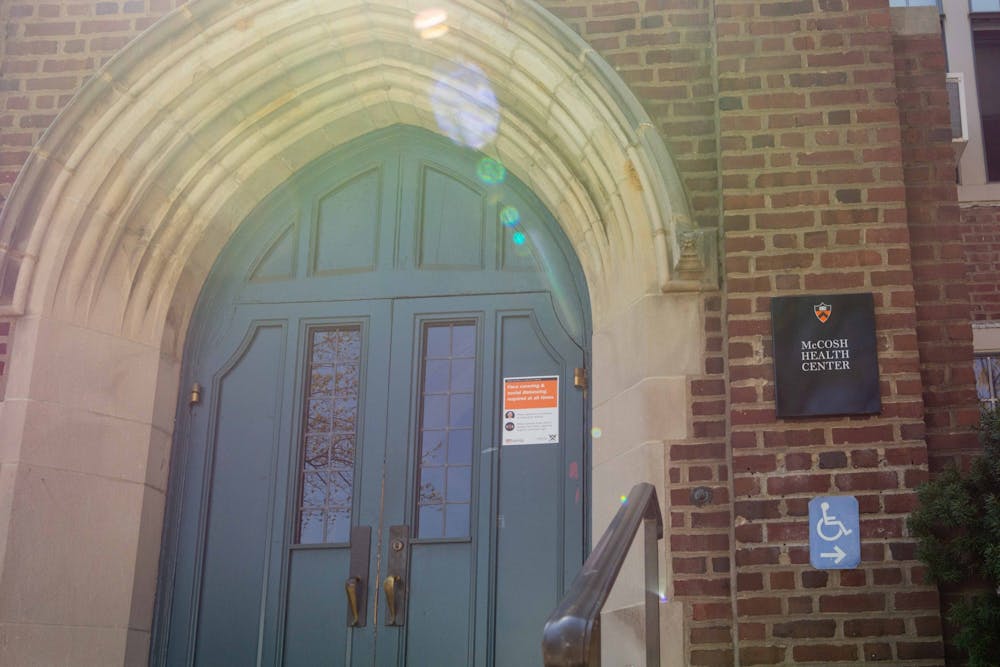During this time of year — perhaps with the beginning weeks of flu season occurring or with the pace of the semester escalating — many students are getting sick. Several students are well aware of this: being surrounded by the frequent coughing in lecture halls, or hearing banter about the “Princeton Plague” and stories of being turned away by McCosh Health Center.
This all-too-familiar experience shouldn’t be a situation we find as “normal” or just an “ordinary part” of our day-to-day life, as Laya Reddy and Tara Shukla argued in a recent column focused on the current illnesses going around. But while the “Princeton Plague” has brought these issues into sharper relief, the University’s lack of sufficient support for sick students has been and will continue to be an issue beyond this specific illness, unless the administration takes certain steps to mitigate it.
One issue that highlights this reality is the current policy regarding extensions for assignments and exams. Course Policies and Practices notes that “both the faculty member and the student’s residential college dean or director of studies must approve an extension” for any missing classwork. However, requesting extensions through such a mechanism becomes tricky if a student gets sick in last-minute situations.
In addition, such a policy requires students to prove they are ill, thus making it harder for students struggling mentally as well as physically to secure much-needed extensions. On the condition of anonymity, I spoke with a student regarding this issue.
“When I emailed one of my professors explaining how a single-day extension would allow me to prioritize my mental and physical health, they explained how school policy required proof from my dean that I was actually sick and deserved an extension,” the student said. “Forcing students to prove that their health issues are severe enough to warrant understanding and leniency can make them feel like, despite Princeton’s claims, health only takes precedence over academics in extenuating circumstances.”
The University’s policy regarding final examinations also reveals a lack of care for student health. Course policies state that “last-minute postponements of scheduled final examinations are granted by the Registrar’s office alone and only in cases of severe illness.” This suggests that illnesses deemed as “minimal” may force the student to just endure the condition they are in.
Even in cases where a student falls ill during an examination, the policy states that “any student who becomes ill during an examination should try their best to complete it” and that students should “be aware that falling ill during an examination will rarely be cause for rescheduling.”
Thus, students are obligated to be in class while unwell — risking other students’ health — and participate to an extent that may not show their best possible performance, or else be penalized for prioritizing their recovery.

The student I interviewed made an important point that I’d like to emphasize. They said that “creating an environment of empathy and understanding is crucial for allowing people to be comfortable with voicing the realities of their circumstances.” Indeed, the inflexibility of these sick leave policies makes several students feel like they are at fault for being sick and, even more so, when wanting support, are asking unreasonable requests.
Furthermore, students who are sick — especially those who find themselves sick in circumstances that seemingly do not leave room for accommodation — are not asking for anything unreasonable, or even for a “free pass” or “an easy way out.” They are asking for the well-deserved time to recover, so they are able to return to class in proper health. Most importantly, they are asking for some empathy and compassion.
Until the University demonstrates this compassion by changing its extension and examination policies, students will continue to sacrifice their mental and physical health, as has occurred during the most recent round of illness.
Gisele Bisch is a first-year from the North Shore of Oʻahu (Hawai‘i) who plans to concentrate in anthropology. She can be reached at gb8528@princeton.edu.









